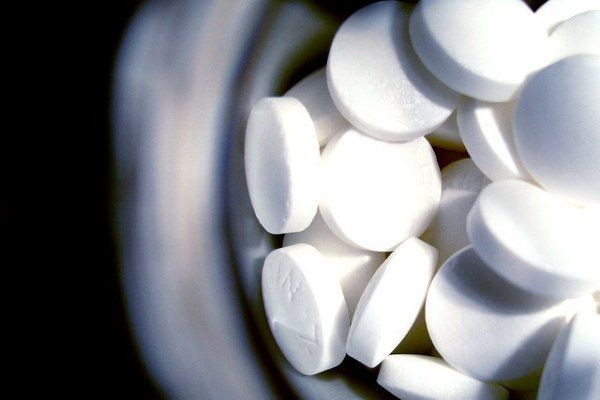An Aspirin A Day To Keep Cancer Away? Research Shows The Painkiller Can Slow DNA Damage

Aspirin has been known to lower the risk for developing certain types of cancers, but scientists were stumped as to how the process exactly worked. Now researchers have found that the over-the-counter anti-inflammatory drug can slow the accumulation of mutations in DNA, which can then turn a precancerous condition, called Barrett's esophagus, into cancer, and also prevent cancers from being more invasive.
"Aspirin and other non-steroidal anti-inflammatory drugs, which are commonly available and cost-effective medications, may exert cancer-preventing effects by lowering mutation rates," said Carlo Maley, Ph.D., a member of the UCSF Helen Diller Family Comprehensive Cancer Center.
In the research recently published in PLOS Genetics, scientists analyzed biopsies from 12 patients who had the precancerous condition Barrett's esophagus. It is not known what causes the disease but gastroesophageal reflux disease (GERD) is a major risk factor and the condition leads to esophageal cancer in many cases.
For the study, patients with Barrett's esophagus were tracked from six to 19 years from the time that they were diagnosed. A group of the patients diagnosed was then told to take daily aspirin for many years and then stop, while another group was told to take aspirin during the study. Researchers then tracked the rates of genetic mutations in the tissues of the affected area throughout the long study period.
Aspirin, or acetylsalicylic acid, has been used for thousands of years and was originally isolated from the bark and leaves of the willow tree. Hippocrates, the father of modern medicine, wrote of using crushed willow products to alleviate pain from headaches and fevers. The exact chemical was first isolated by chemists at the German pharmaceutical company Bayer in 1897.
In the current study, the research group found that those who were taking daily aspirin had rates of new DNA mutations that were 10 times less than when they were not taking the medication. "This is the first study to measure genome-wide mutation rates of a pre-malignant tissue within patients for more than a decade, and the first to evaluate how aspirin affects those rates," Maley said. This is important because the development of cancer is known to happen because of an accumulation of mutations over a long period of time. If cancers themselves have a high rate of mutations, then they can quickly change and adapt to move out of their original location, metastasize, and become resistant to current drug treatments.
Maley hypothesizes that the decrease in mutations has to do with the anti-inflammatory nature of the medication. Inflammation has been linked with the development of certain cancers and the reduction of inflammation by the drug may reduce oxidants, or free radicals, known to damage DNA.
An avenue of research may be to look into slowing the mutation rates of cancers in order to slow their growth and force them to resist becoming insensitive to cancer medications.
Source: Kostadinov R, Kuhner M, Li X, et al. NSAIDs Modulate Clonal Evolution in Barrett's Esophagus. PLOS Genetics. 2013.



























